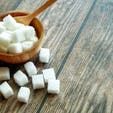When it comes to fat loss many people are using the wrong information to try to achieve fat loss. They know how they would like to look or feel, but they are doing all the wrong things to get there. The end result is frustration, desperation, crash diets, metabolic damage and eventually fat regain.
It is not their fault. Most of what the fitness and fat loss industry puts out is not designed to fully work, otherwise everyone would be walking around lean and healthy. If you show people how to lose fat and keep it off long term there is no chance of having them as a repeat customer.
I think of fat loss like a math problem. The “answer” to this math equation is what we want to look like after losing body fat. The steps or habits required to lose body fat are the “parts of the equation”.
You already have the answer, but if you can never get the right parts to the math problem you can’t solve your fat loss problem.
This report is designed to help people figure out their personal parts of the fat loss equation that will work. No two people are the exact same so what may work great for a friend may not be as effective for you.
I encourage everyone to experiment to see what works best for them, and adopt one habit every two weeks.
Fat loss takes time and dedication, it has taken a while for many people to gain weight so it will take time to lose it as well.
Give yourself at least 6 months to reach your goal instead of getting desperate and going on a crash and burn style diet that will result in metabolic damage commit to checking your desperation and realizing if you adopt these habits over a period of time you can enjoy fat loss as a result of getting healthier.
1. Avoid Processed Carbohydrates
Processed carbohydrates include bread, pasta, crackers, muffins, gluten free products, chips, sugar, fruit juices, oats with sugar, breakfast cereals, “health” bars, pastries and grains.
Processed carbs raise our blood sugar rapidly, causing the release of our main fat storage hormone insulin.
When we keep blood sugar and insulin low by avoiding processed carbohydrates and sugars our body is able to burn excess body fat as fuel instead of needing carbs and sugars constantly.
Blood sugar helps to drive appetite, and by balancing our blood sugar with a reduction of processed managing appetite will become easier.
2. Eat More Protein
Protein is one of the highest satiety foods, meaning it will leave you feeling satisfied and fuller for a longer period of time reducing cravings for snacks.
The thermic effect of food is the increased energy expended by the body to process that food. Protein rich foods have the greatest thermic effect increasing energy expenditure to process them. Muscles helps us to burn fat, and protein is needed to build muscle.
3. Sleep At Least 8 Hours A Night
Sleep is when the body is the most anabolic and when we build muscle. Adequate sleep is also pivotal to recover from exercise. Not getting enough sleep leads to an increase in appetite and increases cravings for carbohydrates and sugar.
Sleep deprivation also causes elevated blood sugar without the introduction of foods which decreases our tolerance to carbohydrates making it harder for us to burn stored body fat as fuel.
4. Clean Out Your Pantry and Fridge
Recognize the foods that are creating roadblocks in your your fat loss goals and remove them from your house. A drug addict who is getting clean doesn’t keep their stash around because they already paid for it.
Put the trigger foods in a bag and hand them to a homeless person on the side of the road. You just did a good deed and helped yourself. By keeping these trigger foods around the house you’re draining your willpower.
By removing those foods you can now dedicate that will power to building complimentary habits to your fat loss journey.
5. Be Aware Of How Much You’re Eating
Low carb is great for taming hunger and reducing insulin, but calories do need to be taken into account and definitely not obsessed over. Balance is what we are looking for here.
As you approach your ideal body weight or body composition, what worked in the past may no longer be effective. Losing the last few pounds requires more fine tuning, if it is no longer working changes need to be made to reach new goals.
There is absolutely a metabolic advantage to eating real foods, but if fat loss has stalled calories and lifestyle habits may need to be adjusted.
6. Lift Heavy Weights ( 3-4 times per week)
The more muscle we build the more fat we will be able to burn. Heavy weight training increases insulin sensitivity meaning your body will able to use carbohydrates more effectively and less carbs will be stored as fat. Heavy lifting usually falls into the 3-6 rep range and 3-5 sets.
Use full body compound lifts: cleans, squat, deadlift, push press, dumbbell lunges, pull ups. Learn proper form first, you can’t train if you’re injured.
7. Stress Management
We evolved to handle short bouts of acute stress pretty well, in paleolithic times we might have ran from a large animal or hunted for food causing stress. What we are not adapted to handle is the chronic low grade daily stressors.
Stress increases hungry and increases the cravings for sugar while making it more difficult to burn fat. Schedule daily stress management practices: meditation, walks in a park or nature, reading a calming book, yoga. Make them a part of your daily ritual, but don’t stress about them.
8. Consume Healthy Fats
Fat has been demonized and blamed for a lot of health problems in the past. We have come to find out that the basis for these claims were built on bad science, and hand picked data. Since the adoption of the low fat, highly processed carbohydrate diet our health has steadily declined.
By consuming more healthy fats, and reducing processed carbohydrates we allow our body to burn dietary and body fat as our fuel. Fat slows gastric emptying, which keeps us fuller for longer preventing unnecessary snacks and cravings.
9. Be Patient
One unhealthy meal did not cause you to gain fat, just like one healthy meal will not cause you to become leaner. It takes time and and consistency to reach fat loss goals, realizing this upfront helps to alleviate stress and gets people away from the damaging “diet” paradigm.
This is a lifestyle change you are not jumping on another crash diet. Learn to appreciate the journey and realize how far you have come. Your habits are changing into a lifestyle, that alone is a reason to be proud of yourself.
10. Sprint (1-2 times per week)
Sprinting is anabolic, which means it builds muscle and strength. It is far more efficient at burning fat than chronic cardio, and takes a fraction of the time. Sprinting makes the body keep burning fat even after the sprint session has been completed.
The beauty is that sprinting can even be done slowly such as pushing a weighted sled, or on an exercise bike and still get the benefits without impact.
11. Set Goals
Set a short term goal and a deadline that you are going to it by. This helps to avoid the I’ll start on “monday” procrastination. Some people wait a month before they decide monday has come around. Write your goals down and put them on the walls of your bedroom and on the fridge.
Place a picture of yourself that you do not like on the fridge or cupboard to remind you to stay on track if needed. Tell people around you about your goals and the deadline for them. Social accountability is a great motivator, especially when you know someone else is holding you accountable.
12. Develop Routines
Willpower is a finite resource, the more you use the less you have for later. Without routines and habits in place we are constantly using that willpower to make decisions that are seemingly pointless, but empty the willpower jar over time.
Success or failure comes down to establishing good or bad habits making certain decisions automatic with no willpower required. The more healthy nutrition and exercise habits become routines, the less willpower is required, and they become easier to maintain.
13. Get Others To Join You
Having other friends to share successes, motivational quotes, recipes and even slip ups is a great way to feel supported when making big changes. Social accountability is a great way to keep on track, especially if you make it a challenge and are in healthy competition with a friend you are trying to beat.
There are going to be the situations that test your dedication, having other people to keep you on track can be really helpful when faced with the temptation to go off course.




)





